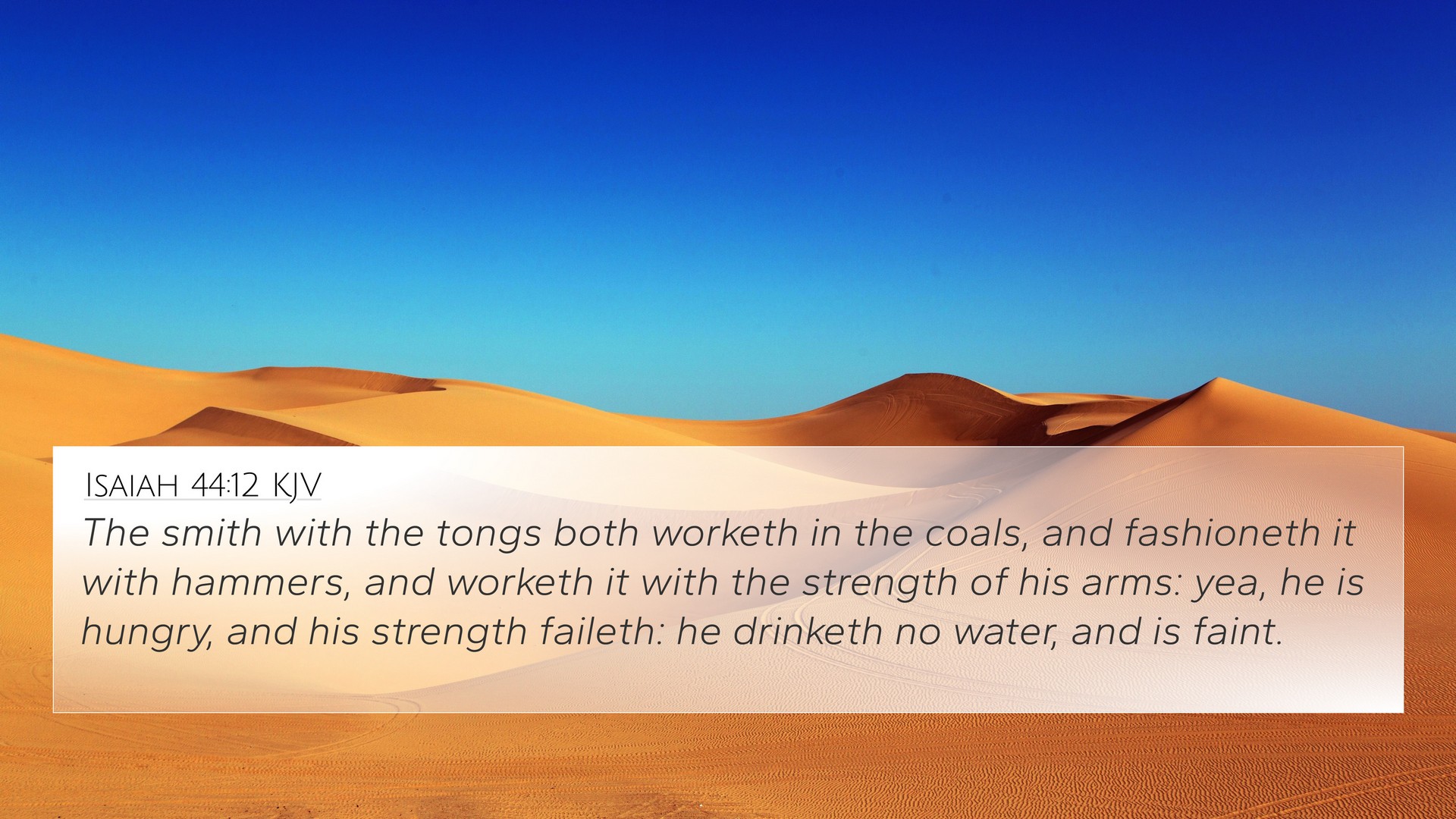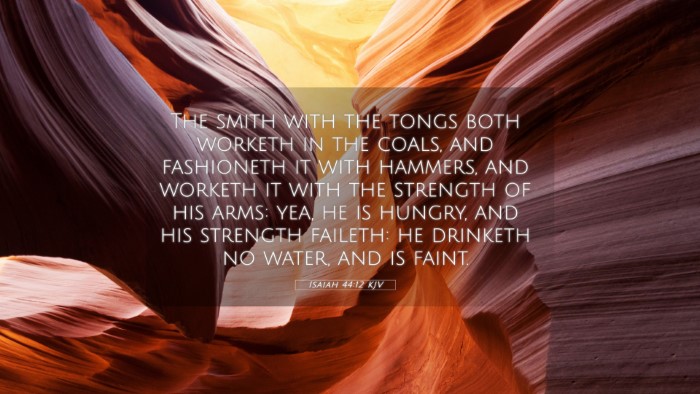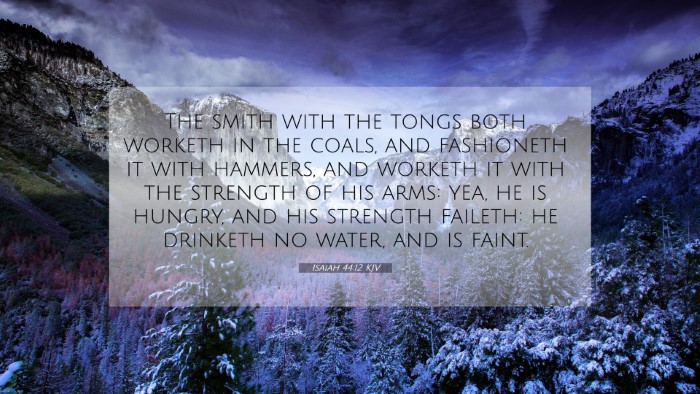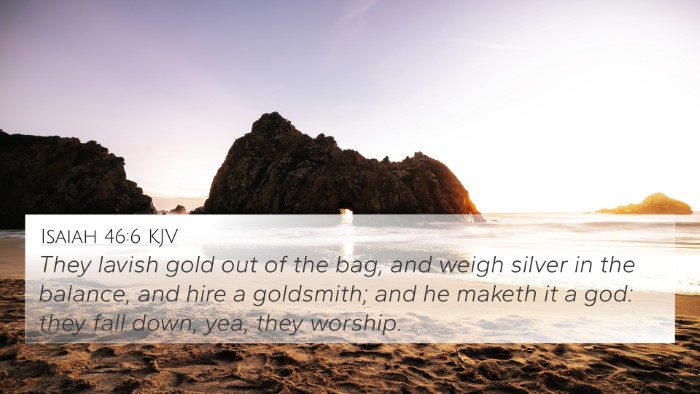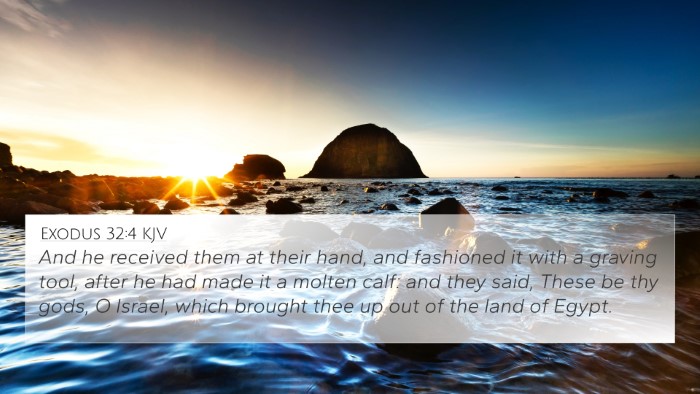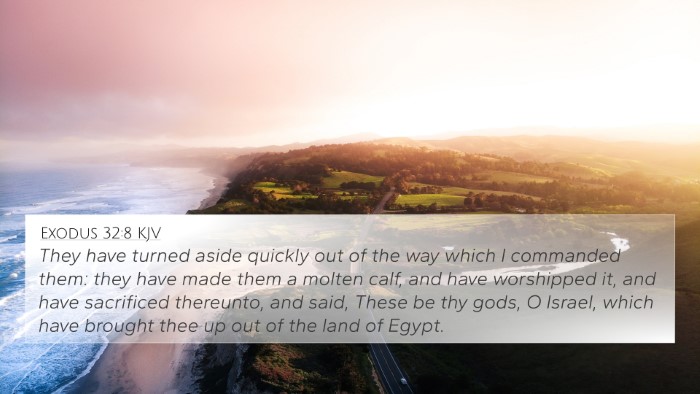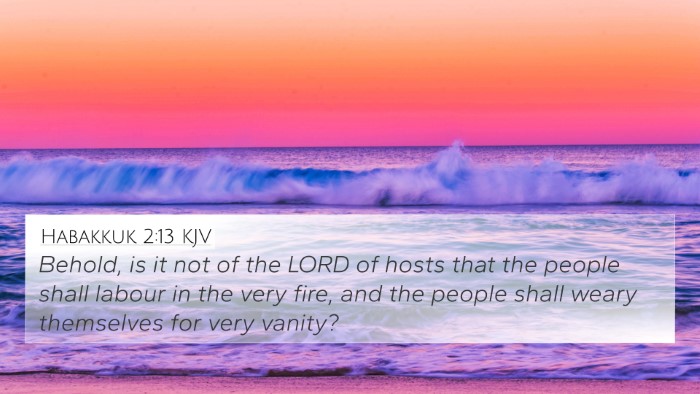Understanding Isaiah 44:12
This verse provides profound insights into the nature of human craftsmanship and the folly of idolatry. Isaiah 44:12 states:
"The blacksmith takes a tool and works it with his strong arm; he gets hungry, and his strength fails; he drinks no water and is faint."
Summary of Insights from Public Domain Commentaries
Isaiah 44:12, as noted in the commentaries by Matthew Henry, Albert Barnes, and Adam Clarke, emphasizes the artisan's physical toil and ultimate limitations. Here we explore the key themes:
The Labor of the Craftsman
Matthew Henry highlights the labor involved in crafting an image. The blacksmith’s use of strength and tools points to human effort in creating objects intended for worship. However, this effort brings forth the question of vulnerability, as the craftsman becomes weary in his task.
The Vanity of Idolatry
Albert Barnes expands on the futility of idol-making, which entails not just physical weariness, but also exposes the crunch of genuine spiritual need. He remarks that despite the artist’s meticulous preparation, the idols created remain lifeless and impotent, unable to satisfy human spiritual hunger.
The Contrast of Divine and Human
Adam Clarke draws attention to a fundamental contrast between the Creator and His creations. The blacksmith symbolizes humanity's limitations, where even a skilled craftsman can falter, whereas God's power remains unbounded. This serves as a profound reminder of the need to rely on God rather than human-made images.
Theological Themes
- Human Effort vs. Divine Dependence: The emphasis on the blacksmith’s toil signifies our human condition—relying on physical strength that ultimately fails.
- Spiritual Idolatry: Isaiah critiques the tendency to create physical representations of spiritual concepts, cautioning against valuing created things over the Creator.
- The Nature of Worship: This verse challenges believers to evaluate the objects of their devotion and to consider if they truly reflect the divine.
Cross-References
This verse is connected to numerous passages throughout Scripture that illustrate similar themes of human limitation and the contrast between idolatry and true worship. Below are some relevant cross-references:
- Psalm 115:4-8 - Discusses the futility of idols.
- Isaiah 40:18-20 - Questions the comparison between God and idols.
- Isaiah 46:1-2 - Describes the burden of idols and their inability to save.
- Jeremiah 10:3-5 - Talks about the crafting of idols and their lifelessness.
- 1 Corinthians 8:4-6 - Addresses meat sacrificed to idols and understanding of God.
- Acts 17:29 - States that we should not think of God as made from human hands.
- Habakkuk 2:18-19 - Speaks about the foolishness of trusting in idols.
- Romans 1:23 - Discusses exchanging the glory of God for images.
- Exodus 20:4-5 - Commands against making graven images.
- Matthew 6:24 - “You cannot serve God and mammon,” which complements the theme of proper devotion.
Application for Today
In conclusion, Isaiah 44:12 serves as a poignant reflection for modern believers, encouraging thoughtful worship and a reassessment of what is truly worthy of our devotion. This verse and its commentary insights lead us to consider:
- How do we allocate our energies and resources in worship?
- Are there modern-day idols we inadvertently create or uphold?
- What lessons can be gleaned about the nature of reliance on God versus reliance on our creations?
Exploring Biblical Connections
Understanding the inter-Biblical dialogue through cross-referencing allows for richer insights into Scripture. Connecting Isaiah 44:12 with the highlighted passages not only enhances thematic understanding but also bolsters one’s Bible study experience through comparative analysis. Utilizing a Bible cross-reference guide can aid in identifying connections between Old and New Testament scriptures, ensuring a comprehensive study of faith.
Tools for Deeper Study
Many tools are available for enhancing the understanding of cross-referencing Bible studies:
- Bible Concordance: An alphabetical list of words and phrases from the Bible.
- Cross-Reference Bible Study: Methods for comparing scriptures on similar themes.
- Bible Reference Resources: Comprehensive materials including commentaries, dictionaries, and encyclopedias.
In summary, by engaging in comparative Bible verse analysis and exploring thematic Bible verse connections, believers can cultivate a richer spiritual life that is firmly rooted in the truths of Scripture.
